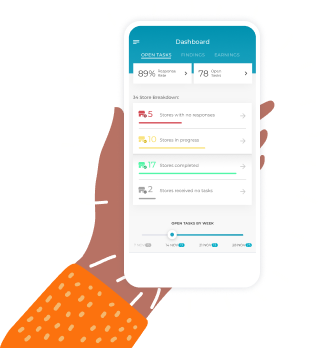AI and machine learning in retail bring two of the most exciting growth areas in modern technologically innovative spaces to one of civilizations oldest activities: shopping. They seize the imagination and inspire visions of rapidly improving productivity and intuitive design that adapts to human needs, rather than the other way around. This is particularly exciting in the brick-and-mortar space. Such companies are highly-tuned machines, where moving inventory and getting it into the hands of customers depends upon having the right product in the right place at the right time, and easily accessible to the customer. Automating these processes is hugely advantageous, since instead of relying upon operations teams, logistics, and in-store associates to make every call, simpler tasks can be performed automatically or aided by smart machines.
Enter AI and machine learning in retail, two distinct but closely related branches of computing. Leaps forward in these fields can empower retailers with better pricing optimization, inventory management, and supply chain, granting increased efficiency and opening the doors to growth. In addition, such applications can also take into account a broad range of factors and provide real solutions to real problems, enabling increased flexibility for teams in both the store and warehouse, and empowering them to make decisions that increase the health of their organizations at every level.
IBM’s Watson and Price Optimization
You might know it as the computer that won a special episode of Jeopardy! against previous champions, but IBM’s Watson artificial intelligence has become one of the best examples of AI and machine learning in retail. A potent and potentially disruptive tool with broad commercial applications, Watsons, has made the leap from game show attraction into powerful enterprise tool in the retail market. Systems like these have a wide range of applications in the retail space, one of which is through pricing.
Ermes Group, the biggest retailer in Cyprus, has teamed up with IBM to provide price optimization through their cloud-based implementation of Watson. Price optimization is a tricky part of the retail business, involving timed markdowns and markups that are based upon a variety of factors including market trends, age of inventory, and prior sales. The levels of automation involved in this process can vary wildly: some companies provide automatically generated market-wide sales and markdowns to stores, while others manually pick and choose which items to include in sales by inspecting records by hand. Watson can take these data sets into account and produce pricing schemes that can drive sales and engagement.
AI and Machine Learning in Retail Supply Chain
The backbone of any large retail organization is supply chain. Products need to arrive on time to the right locations. Nothing hurts sales quite like being out of stock on an item, since every empty shelf is a lost sale. Of course, it’s a good thing for a product to be in high demand, since that offers huge potential to boost sales, however if your supply chain isn’t up to the task of providing supply, then all you’re left with is dissatisfied customers and reduced confidence in your brand.
AI and machine learning in retail can help in many ways to improve the quality of supply chain. It can, for instance, provide demand forecasting by taking in a wide variety of trends and data points, then producing a predictive model of what items will be most in demand at a particular time, well before the product leaves the warehouse. That means it’s even easier to get the right items to the right customers.
There’s also the massive potential for the use of chatbots with regards to procurement. These handy bits of software can use natural language to facilitate exchanges between internal customers, while also answering questions and providing answers far more quickly and comprehensively than previous, more cumbersome implementations. That means operations teams and in-store associates can get back to work faster, rather than wrestling with less intuitive procurement solutions.
AI and Point of Sale
One area where a lot of data is generated but not always used is point of sale. AI and machine learning in retail rely upon good data sets in order to work. After all, what they excel at, particularly in the retail space, is the analysis of information and automation of related tasks.
CB4 takes advantage of this trove of POS data and provides actionable suggestions to in-store teams to drive sales and customer engagement through a variety of methods. By watching sales figures, the application will automatically take into account various factors and push potential action items to managers in real time, allowing them to move on these opportunities faster than ever before.
If you’d like to know more about your buyers and use AI more effectively, then check out what CB4 can do for you.


